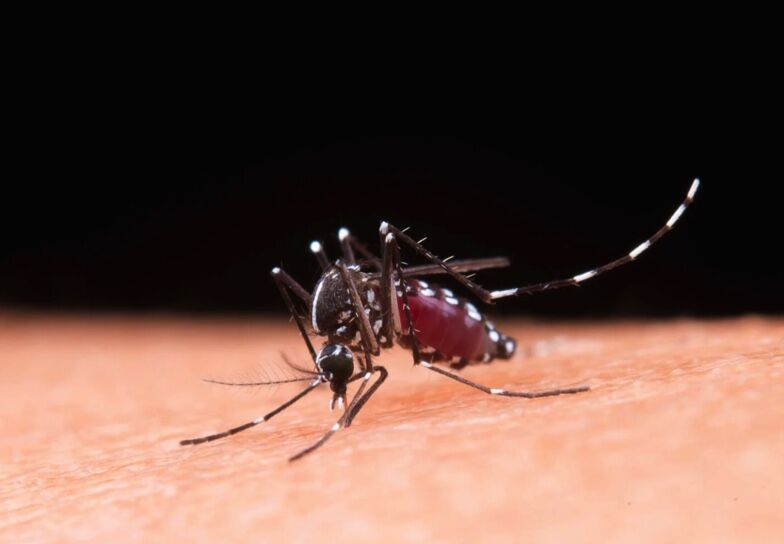Trang warns of severe dengue fever outbreak, 2 deaths and 164 cases reported

Trang province‘s public health department urges citizens to be vigilant against dengue fever as outbreaks become more severe, with two deaths and 164 infections reported, mostly among children. Authorities are expediting efforts to eliminate mosquito larvae.
The province’s deputy public health director, Wacharananon Tin-naiaython, revealed that dengue fever cases have increased significantly in the past two weeks, with 164 infections and two deaths, most of which have been in children. The hardest-hit districts are Hat Samran ranked first, followed by Wang Wiset. The disease has spread rapidly across various districts and villages, affecting 25 out of 8,000 people or 25 per 100,000 citizens. Children up to school age are at high risk of contracting the virus, and the treatment for them is more complicated than for adults, leading to less favourable outcomes.
Early symptoms of dengue fever resemble the common cold, and self-medication can be taken as long as the medication is not used for more than three days. As fevers rise, patients may experience fatigue, vomiting, severe headache, and especially in young children, rapid symptoms such as vomiting and dehydration, which can lead to a state of shock. Adults face similar risks and often misdiagnose their fever as a common cold, self-medicating without proper advice.
In response to the escalating outbreaks of dengue fever in Trang province, authorities are taking preventive measures, as this year is expected to witness severe dengue outbreaks. The public health department is prepared with essential equipment for treating dengue fever and devices for diagnosing the disease. They have devised a 331 strategy to tackle the outbreak: reporting cases within the first three hours and eliminating mosquito larvae within the next three hours around the patient’s home. Within one day, the area within a 100-metre radius of the patient’s home is covered, targeting breeding sites such as schools, residential areas, hotels, factories, hospitals, and government offices.
In addition to these protective measures, a new policy has been introduced to allow Local Health Promotion Hospitals to diagnose dengue fever by testing blood samples with rapid test strips. This method is similar to COVID-19’s ATK tests, which can quickly detect dengue fever and begin necessary treatment.
There are four strains of dengue virus, and this year has seen the emergence of the second strain. While there are similarities in the severity and transmission of all four strains, dengue fever differs from Covid-19, as it has not mutated. Preventive measures and treatments for all strains remain consistent. Regardless of the strain, prevention and transmission control efforts must continue to protect the population from this deadly disease.
Latest Thailand News
Follow The Thaiger on Google News:


























